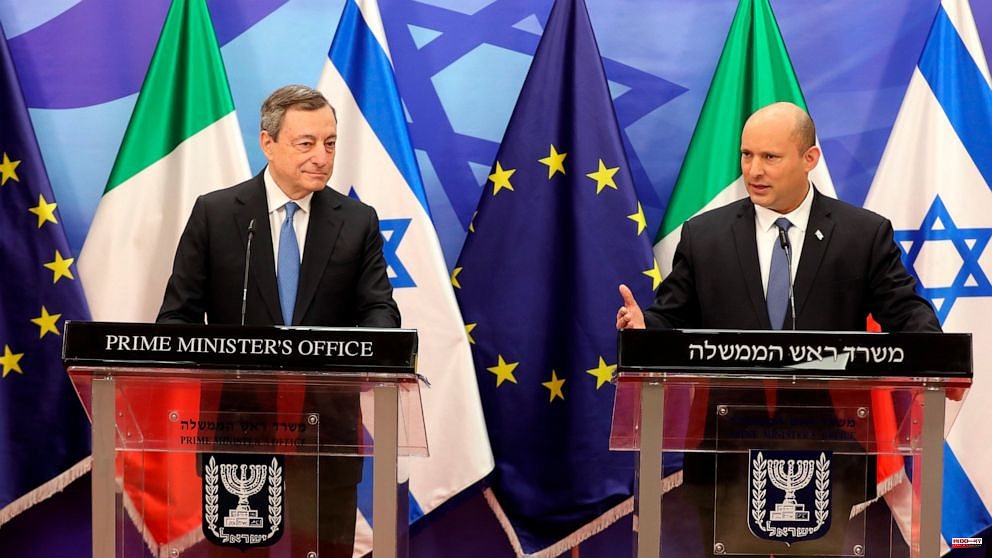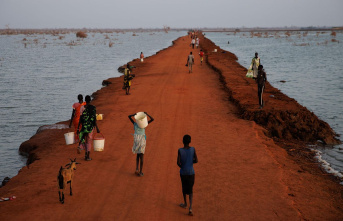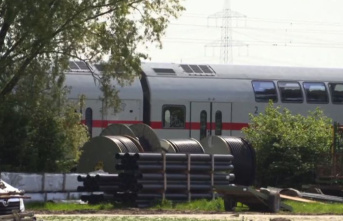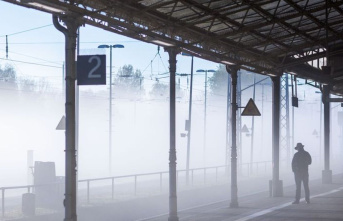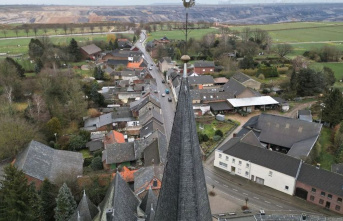JERUSALEM -- European leaders visited Israel Tuesday to express hope that natural gas supplies from eastern Mediterranean countries could reduce Russia's dependence as the Ukraine conflict drags on.
Israel has become a major gas exporter over the past few years due to its offshore discoveries. It has also signed ambitious agreements with Greece and Cyprus in order to build a pipeline. Europe could increase its sanctions against Moscow with new supplies.
At a press conference jointly held with Naftali Bennett, the Israeli Prime Minister Mario Draghi stated that "on the energy front, I will work together in the use gas resources of the eastern Mediterranean" and promised to cooperate on developing renewable energy.
He stated that "We want reduce our dependence upon Russian gas and accelerate the energy transition towards the climate goals we've set ourselves,"
Bennett stated that Israel is working to make natural gasoline available for Europe. According to his office, the two leaders discussed transportation of natural gas through Egypt to Europe.
Ursula von der Leyen from the European Commission, who is also visiting Israel this week, reiterated Europe's determination to stop using Russian gas and suggested that Israel could assist.
Von der Leyen stated, "We are currently exploring ways to increase energy cooperation with Israel."
The European Union allocated 657 million euros ($736 millions) in January to build a 2,000-megawatt underground electricity cable. This will connect the power grids of Israel and Cyprus. Von der Leyen stated that it would be the longest and deepest such cable ever constructed.
The 2020 agreement between Greece, Israel, and Cyprus was to construct an undersea gas pipeline that will transport gas from offshore reserves in the southeastern Mediterranean to Europe.
With a budget estimate of $6 billion, the proposed project was expected to supply approximately 10% of Europe's natural gas requirements. It is however fraught with logistical and political complexities.
Israeli officials stated that the EastMed pipeline would take seven years to complete. They also touted its benefits as being less susceptible to sabotage, and not crossing any national borders.
Construction of the pipeline has not yet started and the EU is still performing preliminary evaluations. A U.S. diplomat stated that the pipeline was too costly, not financially viable, and would take too much time to offer an alternative to Russian gas.
The European Union imported 40% of its gas from Russia last year. It has been a struggle for countries to reduce their dependence on Russia to stop its invading of Ukraine.
Israel has two major gas reserves off its coast, with 690 billion cubic metres of natural gas. It continues to explore for more.

